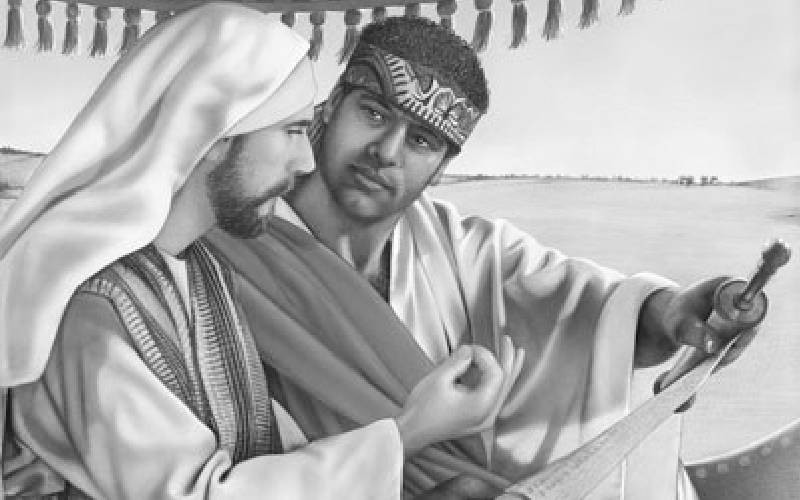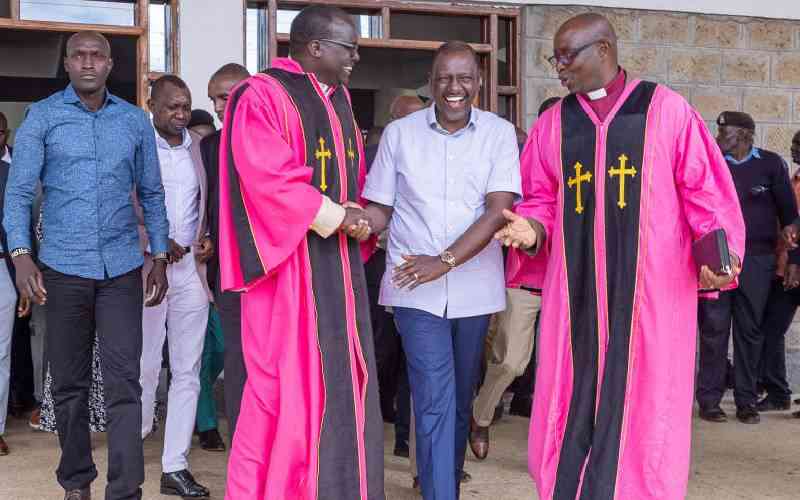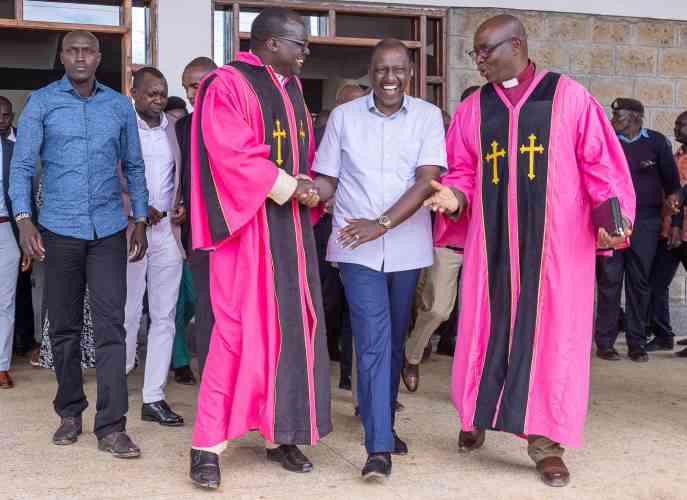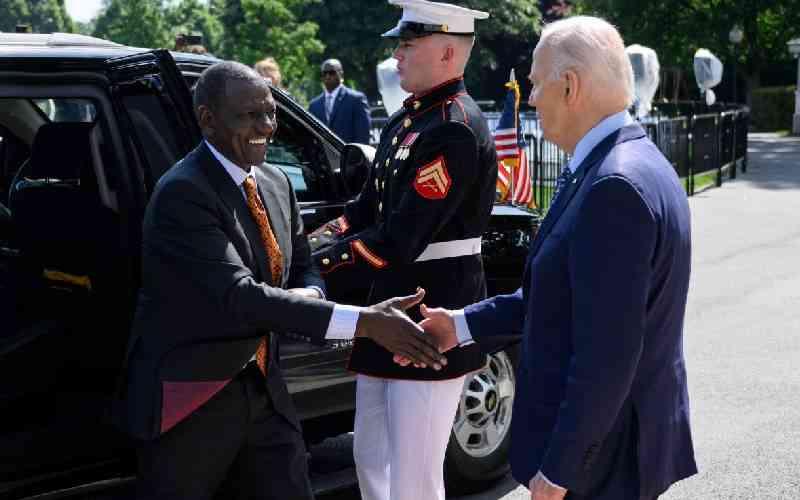
Doubtless, God loves Africa. But does Africa love herself? If Africa understood the love that God has for us, something would be different about our self-perception. Our confidence about our place in the world would not be the same. Our transcontinental leadership would indicate cooperation with the will of the grand Love. If we understood God’s love for us, we would not be as wasteful as we are, or as wasted as we let ourselves be. We would not desert ourselves as we cling to the slippery backs of self-seeking aliens. That we peddle our contents and our heritage at shockingly cheap and embarrassing concessions tells us that we are either ignorant or careless about our pricelessness.
From the biblical account of the Ethiopian Eunuch, we can extract aspects that are empowering, reassuring and elevating for Africa. The read tells of a precious place for Africa in God’s map. The story is at the genesis of the early church. Africa had many delegates in Jerusalem when the Holy Spirit descended. Some of the languages spontaneously spoken were African languages! This Afro-Pentecost element emboldens Africans to speak to each other and to others about God. God, at this watershed event, speaks Africa’s language thus authenticating Africa’s tongues as couriers of the holy. The universal God wants Africans to understand and experience Him not as a foreigner but as a local “God with us.”
The lessons
The story of the Ethiopian Eunuch happens at a time when the church was afraid, and disillusioned. A great hostility was brewing and was to be served by the special squad of Saul (later Paul) and company. When some were planning to disconnect the toddler church from God, He was planning how to connect with these home-going Pentecostal people. One of the places where He chose to effect this connection was in the desert, to a solitary man, an Ethiopian Eunuch on his way home.
Philip the Apostle did not just think of speaking to the Ethiopian. He was stirred to do so by the angel of the Lord. It was God’s initiative that the Ethiopians be reached. Philip did not accidentally stumble onto an African in the desert. He was acting on the instructions of God’s Spirit. This communicates clearly that Africans are not a forgotten lot in God’s heart. God does care for us. That it was God’s initiative that the Ethiopian be reached should stir us also to reach out to God who has already willingly reached out to us. We should stretch our hearts to a God who has already stretched out His hand.
The account could have said “...a man was going back home from Jerusalem...” But the account specifies the man and names his nationality and ethnicity as “Ethiopian.” It implies here that the geographical and tribal identity of this man was relevant. The scriptures mention this man very deliberately and describe him very intensively so that it is clear it was not a mere mention - it was intentional. God not only knew his nationality; He knew his circumstances. God knows who we are. God knows where we are. God’s detailed description of the African is enough to inject confidence in our spirits and make us walk with our heads up as we stride through the corridors of the universe. We may not appear on the map of influential nations, but we are in the heart of the One with the greatest influence in the world – the Owner of the world. We may not have veto power in the United Nations. But we are known to be the one who holds veto power over all creation.
This mission that Philip was dispatched to was a mission of completion. This African man had gone to Jerusalem to worship. He had completed his prayers, his sacrifices and was now returning home. While in his eyes and in the eyes of the tradition of the time the man had completed what was required, God saw in this completeness a crucial incompleteness. God saw a gap in the whole. God saw a need in wealth. God saw some poverty in the richness. He cares that this African man takes home a complete worship experience. Though some people are happy when we are suffering, God cares that we as Africans experience life in its fullness. While some work hard to manipulate us with a hypocritical appreciation, God desires that we have the full benefit of His Spirit. While some care less when Africa is pulled down and run down, God desires to see us built up and thriving.
Just as the Spirit has chosen to befriend us, it is for our own good that we choose this befriending Spirit. Even with centuries of experience, the church today continues in controversy, dividedness and inaccuracy. Is error an inbuilt, inescapable element of the church? We see the church standing on rickety platforms on critical matters on morality and governance in our world. Repeats of compromised and ignorant stands mercilessly corrode the integrity of the church, killing its voice and mocking its relevance.
While the continent is sagging with a Christianity propelled by a “know it all” attitude, in the Ethiopian story, we see an honest faith. In conceding ignorance, we hear the Ethiopian saying to us that if we do not understand whatever matters, God gives us room to say so. Experience has it that even after we have done our best, there will always be gaps. In His love and to cheer our faithfulness, God takes care of the gaps and the blind corners. Honesty of heart opens the door to an enlightening friendship with God. He does not desire ignorant Christians – who pride in not knowing. Nor does He desire pretentious disciples – who claim to know though they know not.
Life partner
The empty seat in our African chariot is in demand. The world powers from the East and from the West are jostling for it. From the Ethiopian’s inspiration, God is our life partner. The Ethiopian represents a generation that embraces God holistically and welcomes God in its economic, political and social chariots. It is His Spirit’s wisdom that guides us to unlock the beauty of the promised abundant life as we construct and reconstruct the continent. We must choose our development companions not out of intimidation and persuasions that betray our men, women and children into debt and lifelessness. We must instead choose our companions with the particular patriotic boldness that invests love and laughter in our children.
 The Standard Group Plc is a
multi-media organization with investments in media platforms spanning newspaper
print operations, television, radio broadcasting, digital and online services. The
Standard Group is recognized as a leading multi-media house in Kenya with a key
influence in matters of national and international interest.
The Standard Group Plc is a
multi-media organization with investments in media platforms spanning newspaper
print operations, television, radio broadcasting, digital and online services. The
Standard Group is recognized as a leading multi-media house in Kenya with a key
influence in matters of national and international interest.
 The Standard Group Plc is a
multi-media organization with investments in media platforms spanning newspaper
print operations, television, radio broadcasting, digital and online services. The
Standard Group is recognized as a leading multi-media house in Kenya with a key
influence in matters of national and international interest.
The Standard Group Plc is a
multi-media organization with investments in media platforms spanning newspaper
print operations, television, radio broadcasting, digital and online services. The
Standard Group is recognized as a leading multi-media house in Kenya with a key
influence in matters of national and international interest.








